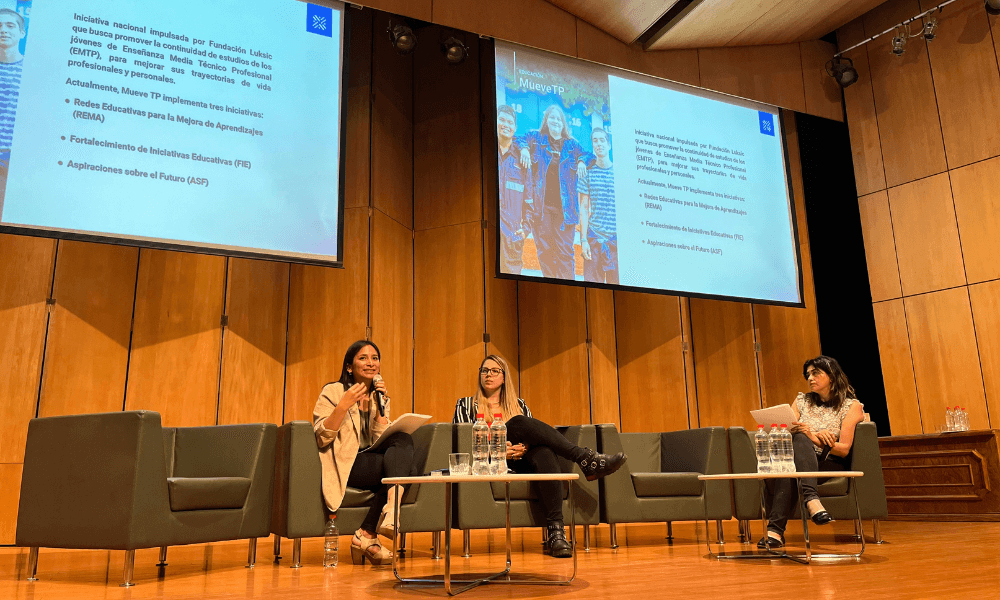“Inequality and educational gap: key actors in the development of young talent” was the topic addressed at the seminar organized by the Faculty of Economics and Business (FEN) and its Talent Development School (EDT) program, with the participation of the Luksic Foundation, the Undersecretary of Education, Gabriel Bosque, and three state universities, among others.
The first panel, entitled “Successful experiences in reducing the educational gap and developing talents”, was led by representatives of Alta Uach, Universidad Austral, Talento Udec, Universidad de Concepción and Propedéutico de la Universidad de Santiago, and detailed the work methodologies they have promoted to support the promotion of talents in children and adolescents.
The second space for conversation was in charge of the Luksic and Sura Foundations, who addressed the importance of public-private alliances to promote the development of talents in students. María Fernanda Orellana, director of the Luksic Foundation’s Education area, spoke about the work the institution carries out through programs such as Redes de Mejora para el Aprendizaje (REMA) and Aspiraciones sobre el Futuro, which aim to promote the continuity of studies of young people graduating from the Educación Medía Técnico Profesional (ETMP) and to address the needs of teachers and students.
“We firmly believe that for projects to succeed, it is the educational communities that must be at the center as the drivers of their initiatives. Our model has an approach based on collaboration with schools, teachers and students, so that they are the protagonists of the changes that will enable us to strengthen secondary technical-professional education,” said Orellana.
The activity was part of the different actions that FEN carries out to promote access to higher education and provide academic support to young people from all over Chile, with a special focus on students who come from EMTP.
In this context, Gladys Ahumada, executive director of the EDT, highlighted the importance of collaboration with the private sector, stating that “they have much to contribute from the rigor with which they do their work. In general, private actors have a genuine interest in strengthening programs such as EDT”.
Regarding the work with TVET students, he said that, in general, “there is a lack of knowledge of PT students in the world of higher education. They have the worst results in standardized evaluations, and they are also in a context of vulnerability. All these factors make them a public that is left out of the universities’ accountability processes. So, offering the opportunity to those who do not have it, was and is our sense”.
Gap of TP high schools in standardized tests
The meeting was also attended by the director of the Center for Advanced Research in Education (CIAE), Juan Pablo Valenzuela, who gave a master class on the pre and post-pandemic educational panorama and gaps at the national level.
During his presentation, the academic presented data showing how the gap between scientific and humanistic high schools and professional technical schools is reduced when the latter have quality educational plans. Thus, for example, a student from a technical school who took the Simce in 8th grade and scored 70 points lower than a scientific-humanist student, could reduce that difference by up to 50% when taking the old PSU, if he/she enrolls in a technical high school with an effective educational program.
